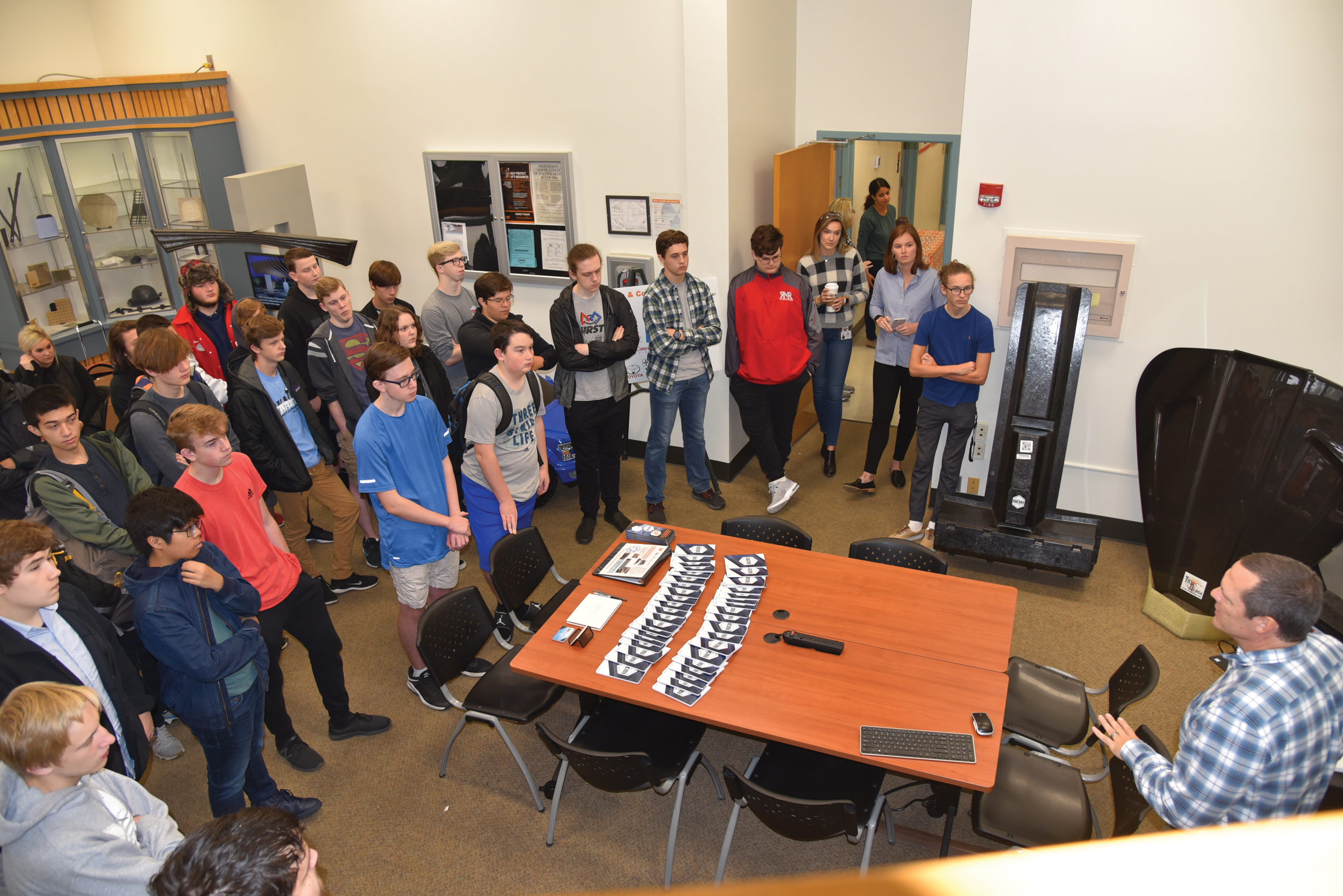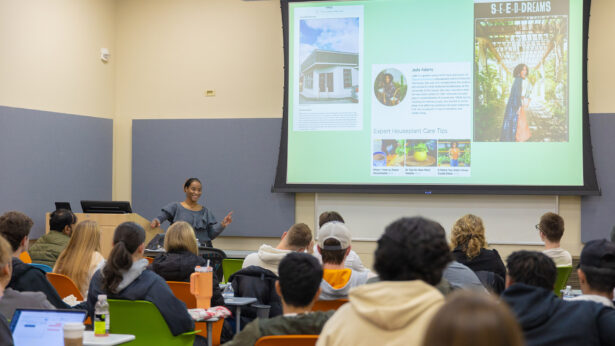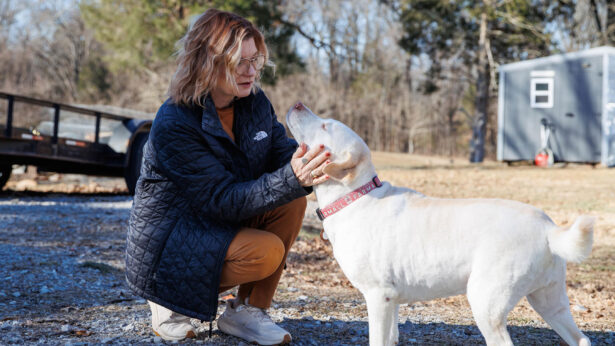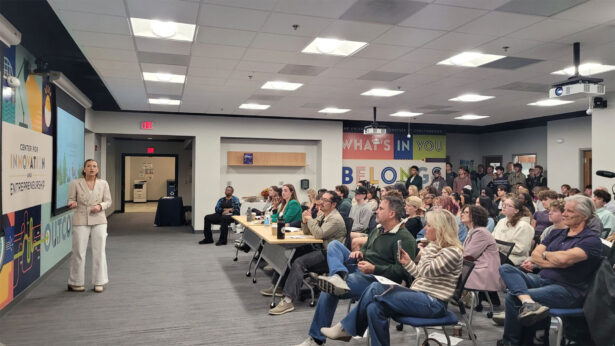Featured Photo: Tony Schmitz talks to students from Halls High School at the UT Fibers and Composites Manufacturing Facility about the joint research with Oak Ridge National Laboratory.
Photo by Susan Robertson
By Susan Robertson
“Over the next decade nearly 3 and a half million manufacturing jobs likely need to be filled. The skills gap is expected to result in 2 million of those jobs going unfilled.”
– The Manufacturing Institute’s Report: The Skills Gap in U.S. Manufacturing
Working with manufacturers across the state of Tennessee, the UT Center for Industrial Services (CIS), an agency of the UT Institute for Public Service, frequently hears comments that echo the Manufacturing Institute’s findings.
In addition to providing technical assistance in the form of Lean Manufacturing assessments, quality management, Six Sigma training and cyber security reviews, CIS promotes the field of manufacturing across the state. In October, CIS consultants helped organize Manufacturing Day events in businesses and industries in every region of the state. Manufacturing Day is a national grassroots movement started to promote modern-day manufacturing.
The Manufacturing Institute and Deloitte Skills Gap Study confirmed there is still a significant shortage of talent in U.S. manufacturing, and it is only projected to grow during the next decade. A surprising 84 percent of executives agree there is a talent shortage in U.S. manufacturing. As the baby boomer generation retires and more jobs are created by economic expansion, the skills gap will continue to expand, making the need for companies to attract and expand workers even more critical.
“We want to change the way our state’s youth view manufacturing,” says UT CIS Program Manager Dwaine Raper, who leads the agency’s Manufacturing Extension Partnership program. “That is why we actively participate in Manufacturing Day events across the state. We work with partners to bring high school students to industries in every region. We want the students to see that manufacturing is high-tech and innovative these days. These aren’t the same plant floors where their grandfather might
have worked.”
Students from Fulton and Halls high schools in Knoxville visited the University of Tennessee Fibers and Composites Manufacturing Facility for a tour and to learn about the varied areas of manufacturing. The facility is just one of the partners working closely with the Oak Ridge National Laboratory and the Institute for Advanced Composites Manufacturing Innovation.
“It’s interesting to see all of the different things happening in manufacturing and research,” says a
junior from Halls High School. “It’s great to get an opportunity to visit these facilities and learn about everything they do.”
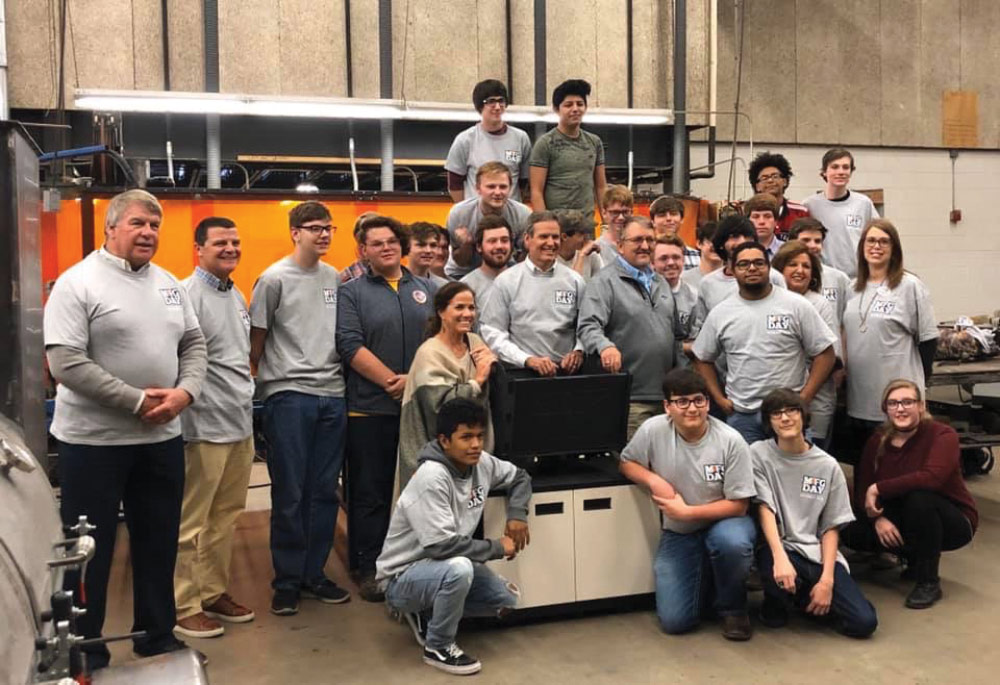
Photo by Andre Temple
In Middle and West Tennessee, CIS also organized high school visits with different manufacturers. Ninety students from Riverside and Scotts Hill visited Kolpak/Welbilt. Almost 30 students from Van Buren County schools and White County schools toured Acument Global Technologies in Van Buren County. The students and several teachers experienced a plant tour and heard from the plant manager.
The visitors also played a 5S numbers game after the tour. 5S is a workplace organization method that uses a list of five Japanese words: seiri, seiton, seis, seiketsu and shitsuke. These have been translated as: sort, set in order, shine, standardize and sustain. One of the teachers from White County asked if the company will come to the high school in the future to conduct the 5S talk to a larger group of students.
CIS, the Tennessee Department of Economic and Community Development and the Delfield Company in Covington sponsored a group of 35 students from Brighton, Covington and Munford high schools. Following a tour of the Welbilt facility, students heard from the human resources director who talked about job descriptions, benefits and the job-application process.
Tennessee Gov. Bill Lee joined the CIS Manufacturing Day at Crockett County High School. He visited the school as part of his focus to strengthen schools across the state and to place an emphasis on career and technical education programs in high schools.
“The reason we passed the Governor’s Investment and Vocational Education Act, the GIVE Act, is to strengthen and fund programs like this one. So, one of the things we want to do around the state is to look at models that we can duplicate, and the career and technical education program here is a model,” Lee says.
